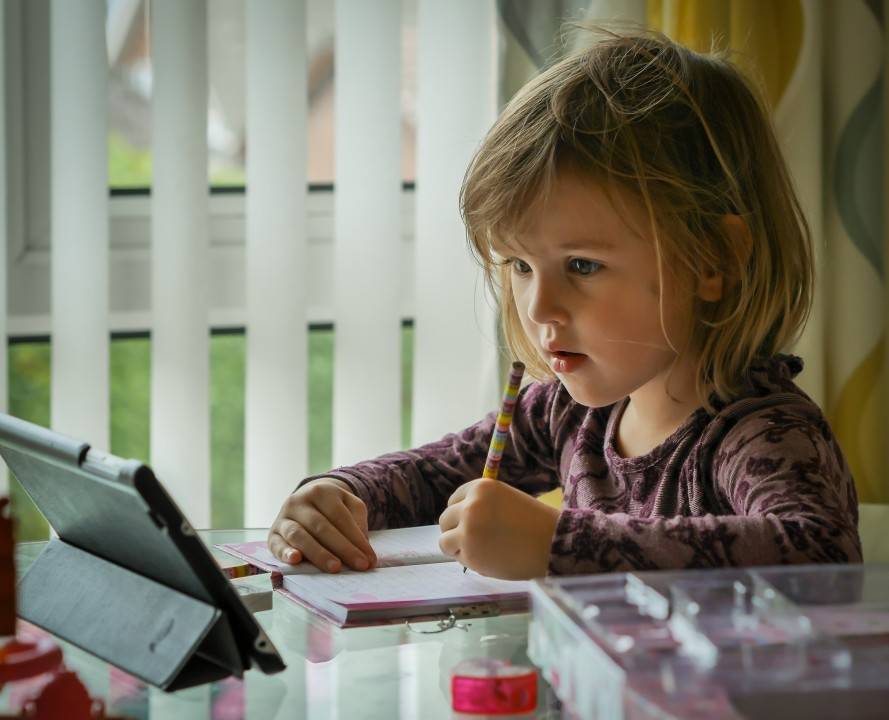Nurturing a child’s enthusiasm for learning is a wonderful gift that may influence their whole educational career and beyond. As parents and caregivers, we can establish an atmosphere that encourages curiosity, a hunger for information, and a lifetime love of learning.
We at Omega Pediatrics will look at 20 ways to nurture your child’s love for learning. Each tactic is supported by professional guidance, resulting in a complete handbook to inspire and assist your child’s educational development.
Applying these tactics may lay the groundwork for your kid to become a lifelong learner, armed with the skills, passion, and desire to explore their surroundings.

1. Create a supportive and encouraging atmosphere at home.
Positive reinforcement, curiosity, and a development attitude play important roles in creating a favorable learning environment. Encourage your child to ask questions, applaud their efforts, and assist them in overcoming obstacles.
You can ignite their excitement for learning and help them build a lifetime love of school by establishing a safe atmosphere where they feel supported and encouraged.
2. Provide access to diverse learning resources.
Provide your children with various instructional materials, including books, journals, and Internet resources within reach. These resources introduce your kid to various themes, cultures, and viewpoints, pique their interest, and grow their awareness of the world.
You may encourage your child to explore various spheres of interest by ensuring access to learning tools.
3. Incorporate hands-on activities to make learning fun and engaging.
Hands-on activities, according to the National Association for the Education of Young Children, should be incorporated into their learning experiences. Participate in science experiments, arts and crafts projects, and imaginative play with them.
You can encourage your child’s innate curiosity and inventiveness by offering engaging and entertaining learning experiences. This technique makes learning fun and helps students acquire important skills like problem-solving, critical thinking, and cooperation.
4. Utilize technology as a learning tool.
Make use of educational websites and applications to supplement their educational journey. Engaging information, interactive quizzes, and learning games are available on interactive platforms, making complicated subjects more accessible and fun.
Also, educational films and podcasts can deliver knowledge appealingly and engagingly.
You may use technology as a learning tool to pique your child’s interest and help their educational development by including it as a learning tool.

5. Encourage questioning and critical thinking.
This technique creates an inquisitive attitude in your child. We suggest encouraging open-ended discussions and probing inquiries. Encourage your children to investigate many points of view, examine facts, and establish their conclusions.
You encourage them to become active learners who seek information and insight by developing their critical thinking skills. This ability will serve them well in their academic endeavors and beyond, as they can navigate the world’s intricacies with curiosity and judgment.
6. Support independent learning.
Supporting autonomous learning is crucial. Allow children to choose their themes of interest and conduct self-directed inquiries and discoveries on topics that interest them.
This method fosters intrinsic desire and a sense of control over their education.
Setting objectives and challenges allows kids to take ownership of their learning experience, fostering self-discipline, perseverance, and a lifetime love of learning.
7. Create a reading-friendly environment and read aloud to your child.
Highlight the value of creating a comfortable reading nook, accumulating a personal library, and going to libraries and bookstores together. Emphasize the fun and benefits of reading by surrounding your children with books.
Reading aloud introduces kids to the enchantment of narrative while also aiding in developing their language abilities and creativity.
8. Engage in real-world experiences like field trips and volunteer work.
Look into educational trips related to their hobbies and curiosity. Museums, zoos, and historical places expose kids to new information and experiences. Volunteering develops empathy, compassion, and a feeling of social duty.
Immersing your kid in hands-on, real-world experiences allows them to apply their learning practically, enhance their comprehension, and build a larger view of the world.
9. Promote hobbies and extracurricular activities.
Let your child know the importance of sports, the arts, and music. These activities allow your kid to pursue their interests, learn new abilities, and build a sense of mastery. Hobbies and extracurricular activities allow for creativity, self-expression, and personal development.
Expose your child to new challenges, experiences, and social interactions, promoting a balanced learning and personal growth approach.
10. Build a strong partnership with teachers.
The National Education Association emphasizes regular contact and parent-teacher conferences. Develop a good support system by actively participating in your child’s education, exchanging information and insights, and working with instructors.
Supporting your child’s learning at home and collaborating with educators can greatly improve their educational experience. This collaborative approach fosters a sense of shared responsibility and shows your child the importance you place on education.

11. Encourage collaborative learning with peers.
This involves encouraging group projects and debates that demand collaboration and effort. Collaborative learning helps your child interact with others from different backgrounds, develop excellent communication skills, and learn from their peers.
Group activities may foster creativity, problem-solving, and critical thinking abilities as kids learn to collaborate to attain common goals. Organizing educational playdates and workshops fosters community and camaraderie by providing chances for social contact and shared learning experiences.
12. Emphasize physical health and a balanced lifestyle
According to the Centers for Disease Control and Prevention, regular exercise, good eating habits, and proper sleep significantly influence children’s academic achievement and general well-being. Sports, outdoor play, and family trips should all be encouraged.
Encourage a good diet by providing balanced meals and snacks. Ensure your little one receives adequate sleep to promote cognitive function and focus. Prioritizing their physical health lays the groundwork for a healthy body and mind, allowing optimal learning and growth.
13. Foster emotional well-being through stress management.
Assist your child in developing appropriate coping skills for stress and anxiety, such as deep breathing or journaling. Encourage them to communicate their emotions through art, music, or writing. And create a caring and supportive environment where kids can express their emotions.
You establish a pleasant emotional environment by addressing their emotional needs, which improves their general well-being and excitement for learning.
14. Make learning opportunities part of your daily routine.
Introduce educational talks into mealtimes, explore educational apps and activities while traveling, and promote observation and interest in their environment. Engage them in meaningful discussions about their day, current events, or fascinating topics.
Encourage children to explore and question their surroundings, arousing curiosity and motivating them to actively seek information. Use car time to teach new information or play educational games. Integrating learning into daily life fosters a culture of constant learning and curiosity.
15. Celebrate achievements and milestones to motivate.
Recognize your child’s triumphs and improvements, both great and small. This positive reinforcement increases their self-esteem, confidence, and innate drive to study and succeed. Celebrate their accomplishments with words of praise, little rewards, or family gatherings.
Recognizing and appreciating their effort and hard work fosters a sense of pride and a profound respect for the learning process.
16. Encourage outdoor play and exploration.
Screen-free outdoor recreation is significant for your child’s growth. Encouraging outside play and discovery is an excellent supplement to your child’s educational experiences. Let them engage in unstructured outdoor play, such as constructing forts or participating in sports.
Outdoor play engages their senses, increases physical exercise, and fosters creative thinking. It allows for exploration, observation, and problem-solving. Your kid may feel wonder, curiosity, and profound respect for the natural world by engaging with nature and the outdoors.
17. Introduce educational games and puzzles.
This is an efficient strategy to encourage cognitive growth. We at Omega Pediatrics recommend that they play age-appropriate puzzles, board games, or educational applications. These activities improve problem-solving abilities, critical thinking abilities, and logical reasoning.
Educational games also aid in developing focus, memory, and fine motor abilities. Educational games and puzzles allow your youngster to study many disciplines while strengthening their cognitive abilities in a fun and interactive way.
You cultivate a love of interesting and intellectually stimulating learning by including these activities in your learning regimen.
18. Promote creativity through art and music activities
The National Endowment for the Arts highlights the importance of creative expression in cognitive development. Encourage your child to participate in artistic activities such as sketching, painting, or playing an instrument.
These exercises encourage self-expression, creativity, and problem-solving abilities. They urge your child to think outside the box, to be creative, and to find their voice.
You may ignite their desire for self-discovery and creative learning by giving them chances for artistic inquiry.
19. Encourage participation in community events and cultural activities.
Attend local festivals, art exhibitions, or community workshops with your child. These activities introduce your kid to various cultures, customs, and aesthetic expressions. They extend their perspectives, encourage tolerance, and create a greater awareness of their surroundings.
Your child develops a sense of social connectivity, empathy, and lifetime respect for the importance of cultural variety by actively participating in community activities.

20. Set aside time for learning, exploration, and quality family interactions
Schedule time for family activities like game evenings, outdoor hikes, and cooking together. These occasions allow for important talks, connections, and pleasurable experiences. Prioritizing excellent family time builds a solid foundation of love, support, and participation.
This good family dynamic improves your child’s general well-being and fosters a supportive atmosphere in which your child’s love of learning may flourish.
Nurture your Child’s Love for Learning
Developing your child’s love of learning is a process that demands commitment, creativity, and awareness of their needs and interests. You can establish a supportive and exciting environment that stimulates curiosity, critical thinking, and a real love of school.
You may instill a lifetime love of learning in your child by giving them the skills they need to prosper academically, emotionally, and intellectually. Embrace the journey, treasure the moments, and watch your child’s enthusiasm for learning to grow.
We at Omega Pediatrics want your child to grow not only physically but also academically. We have lots of articles that may help you nurture your child’s academic growth.



